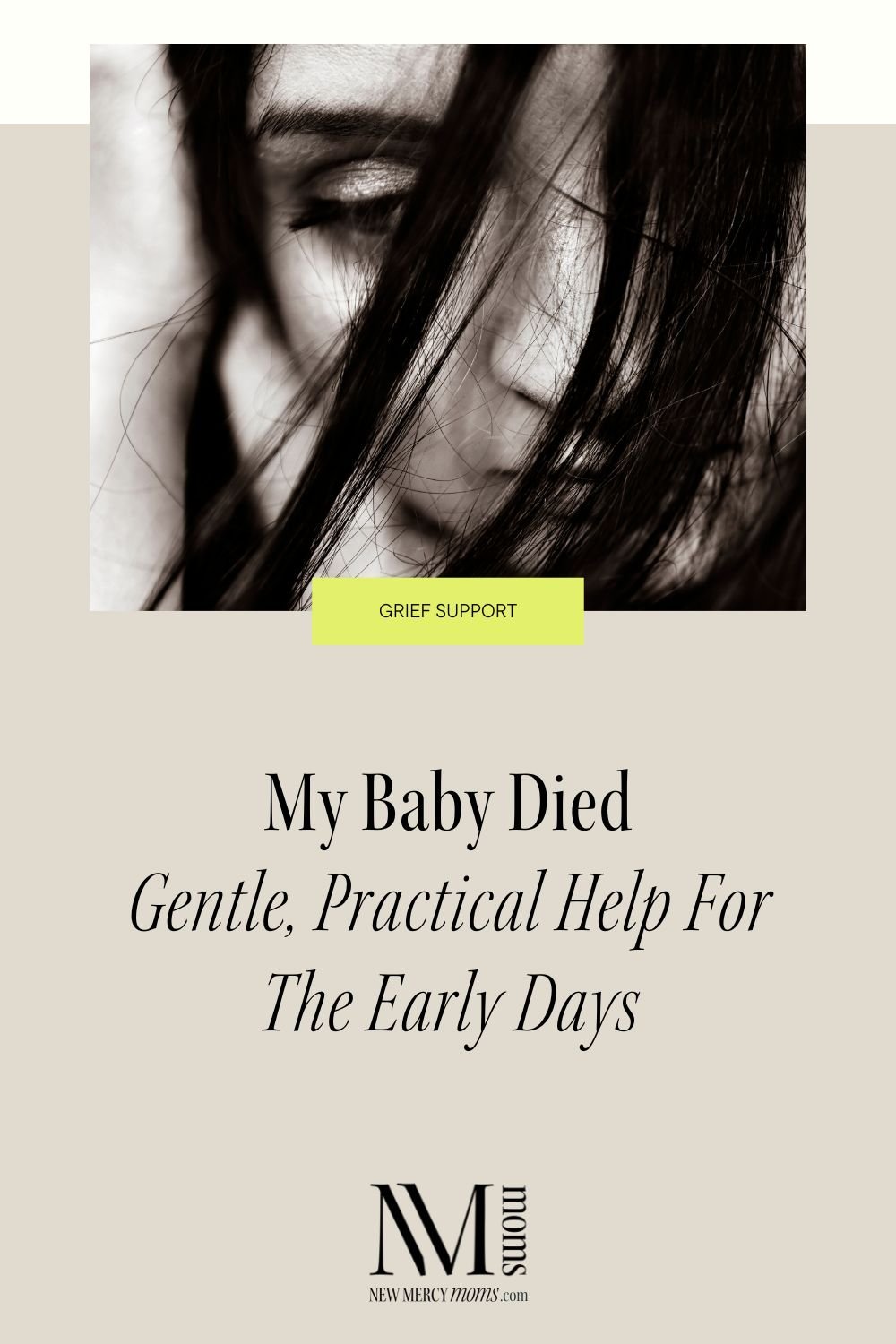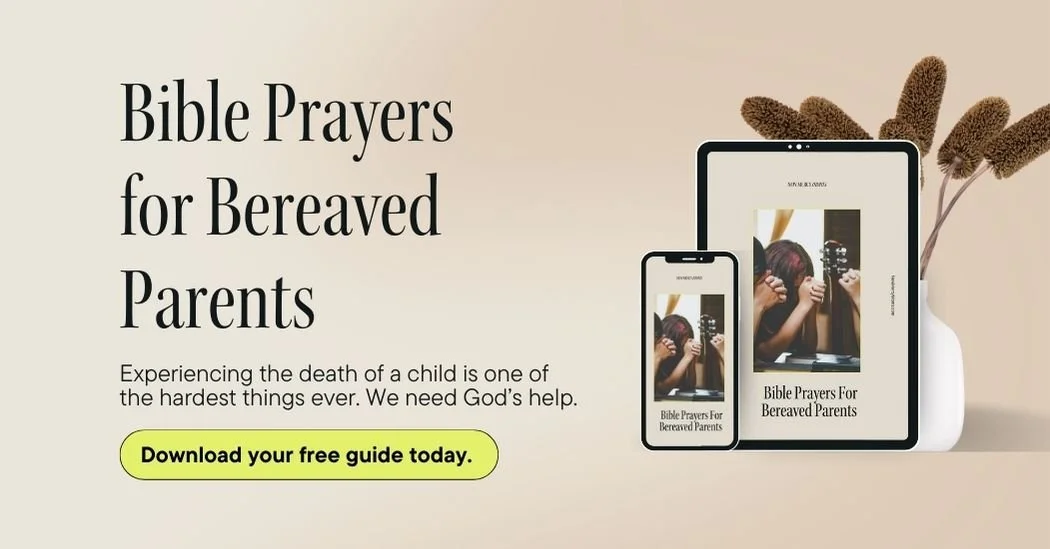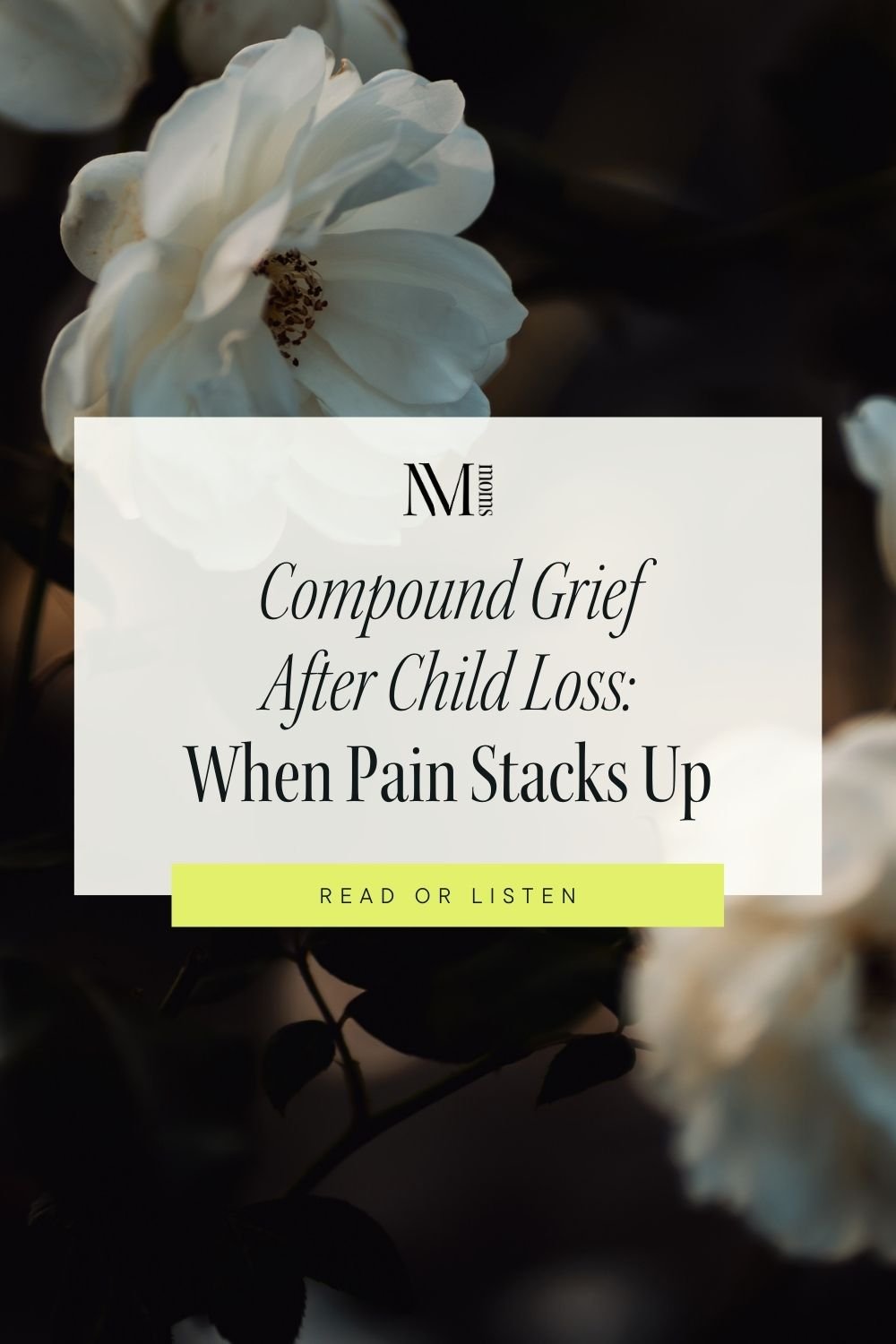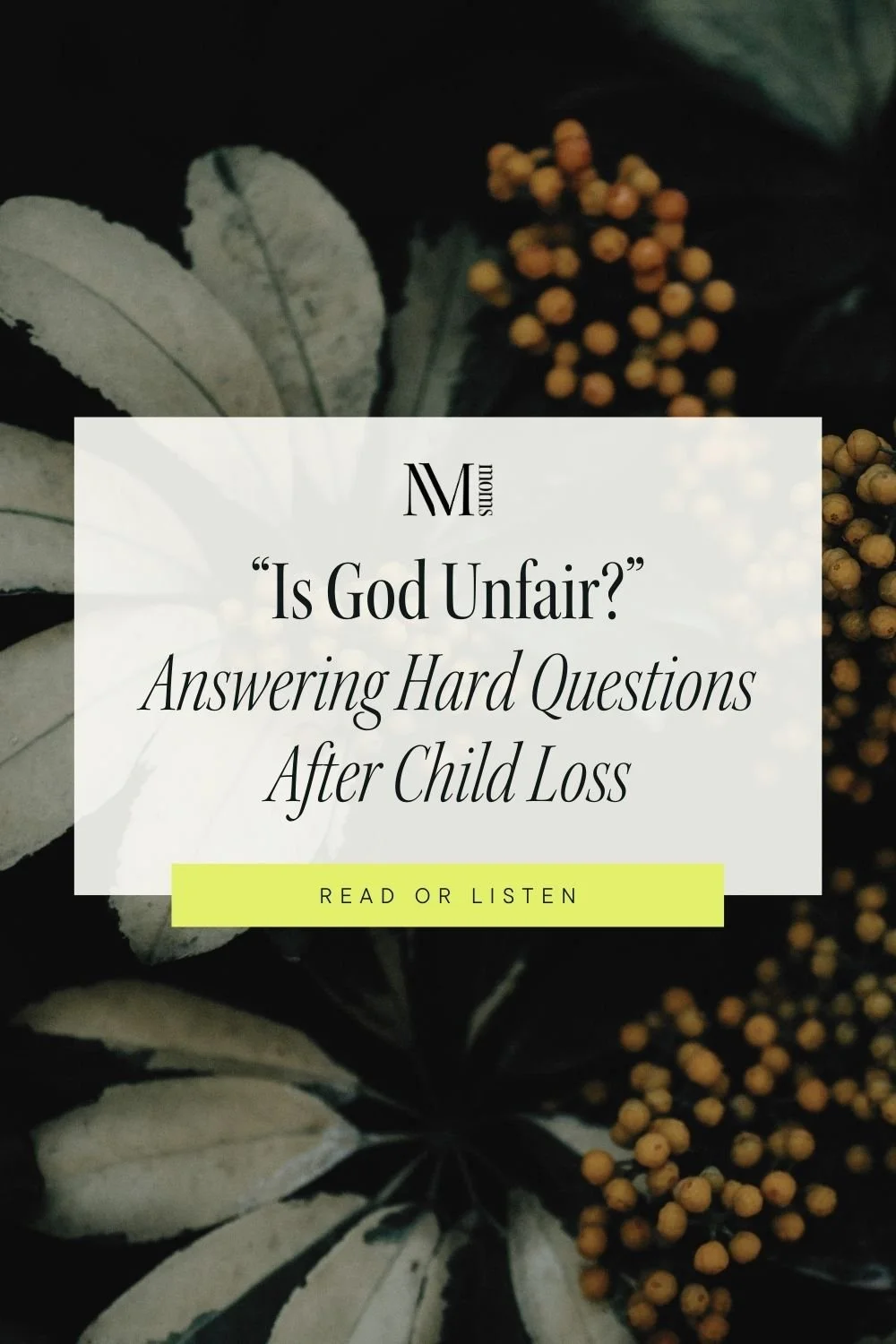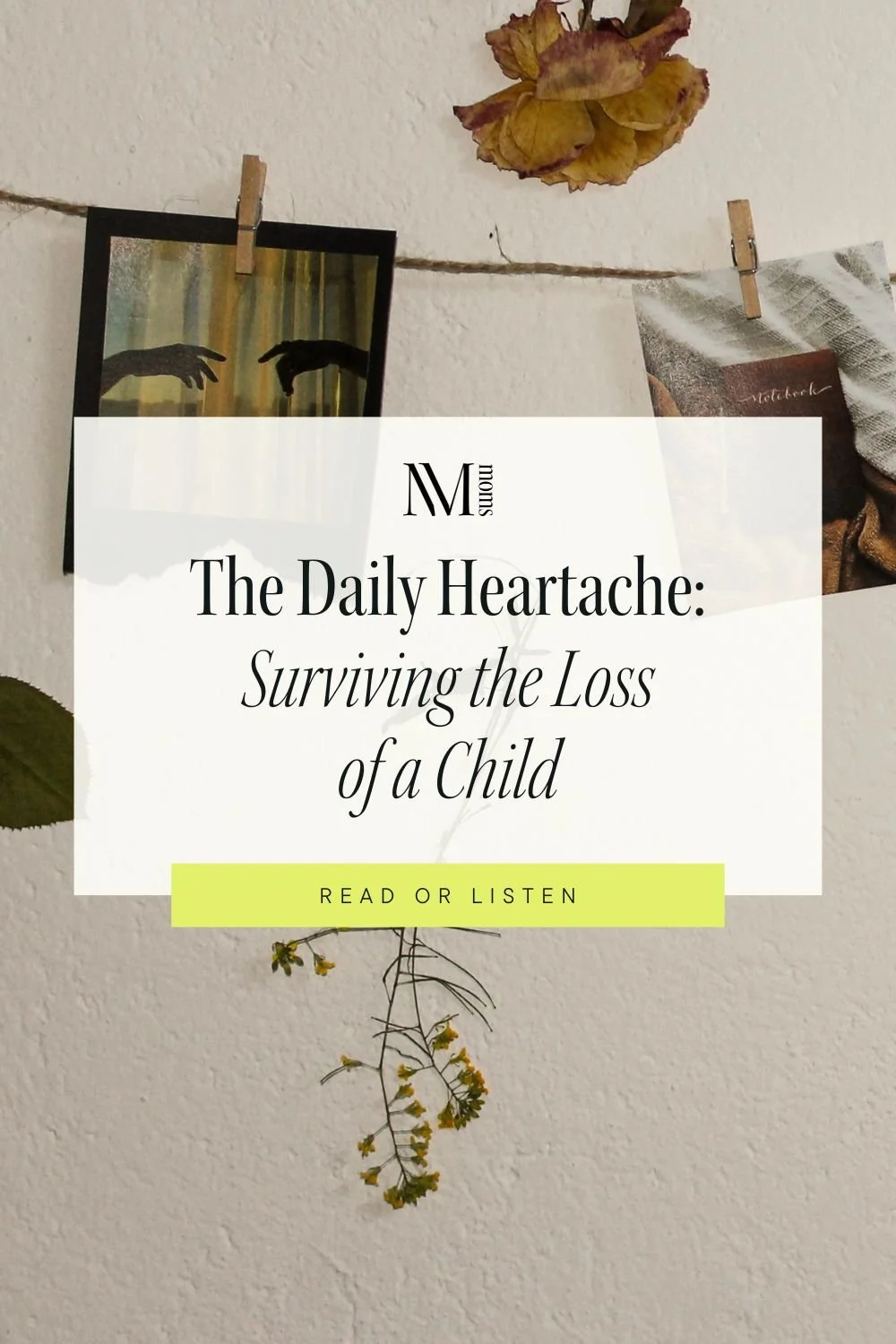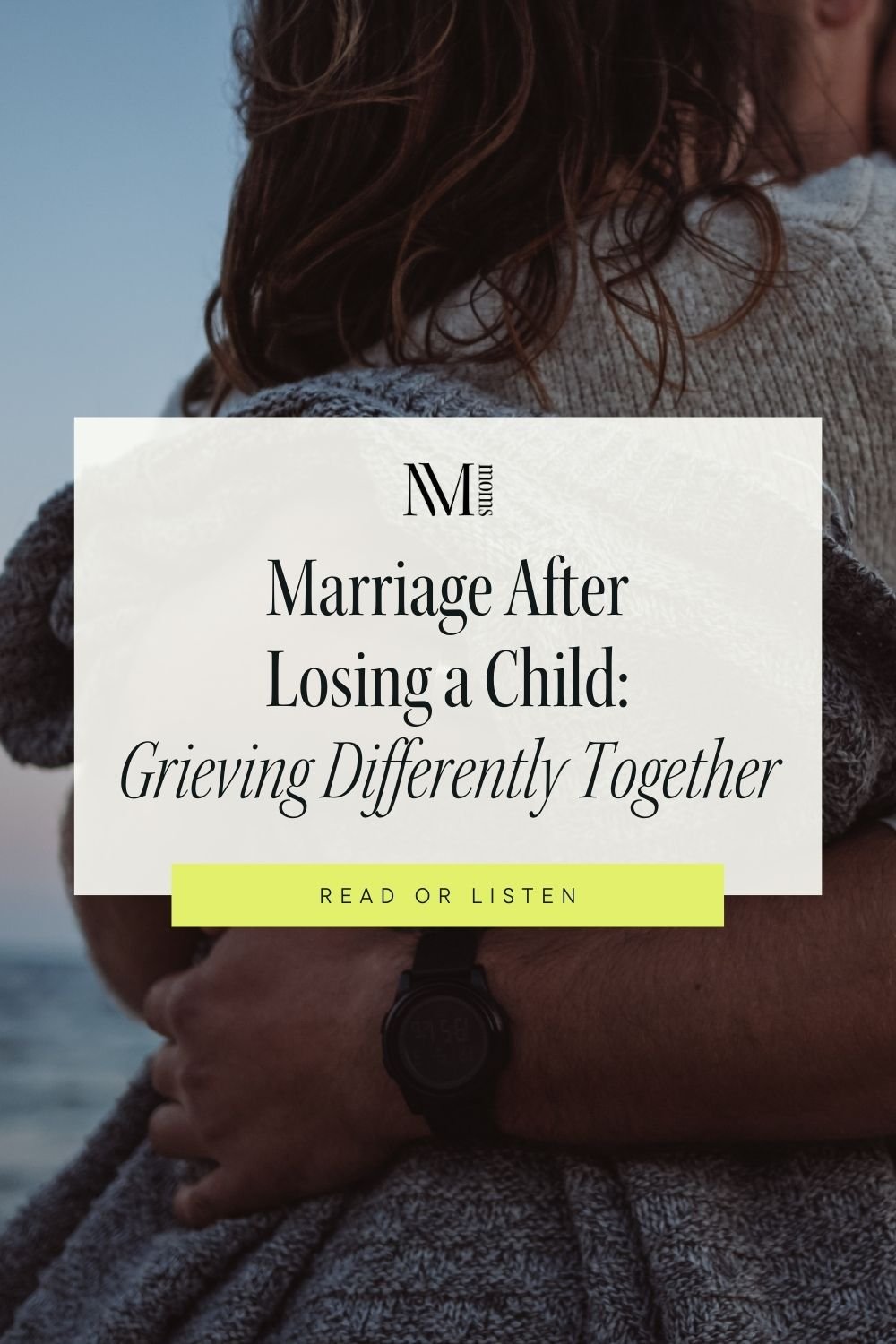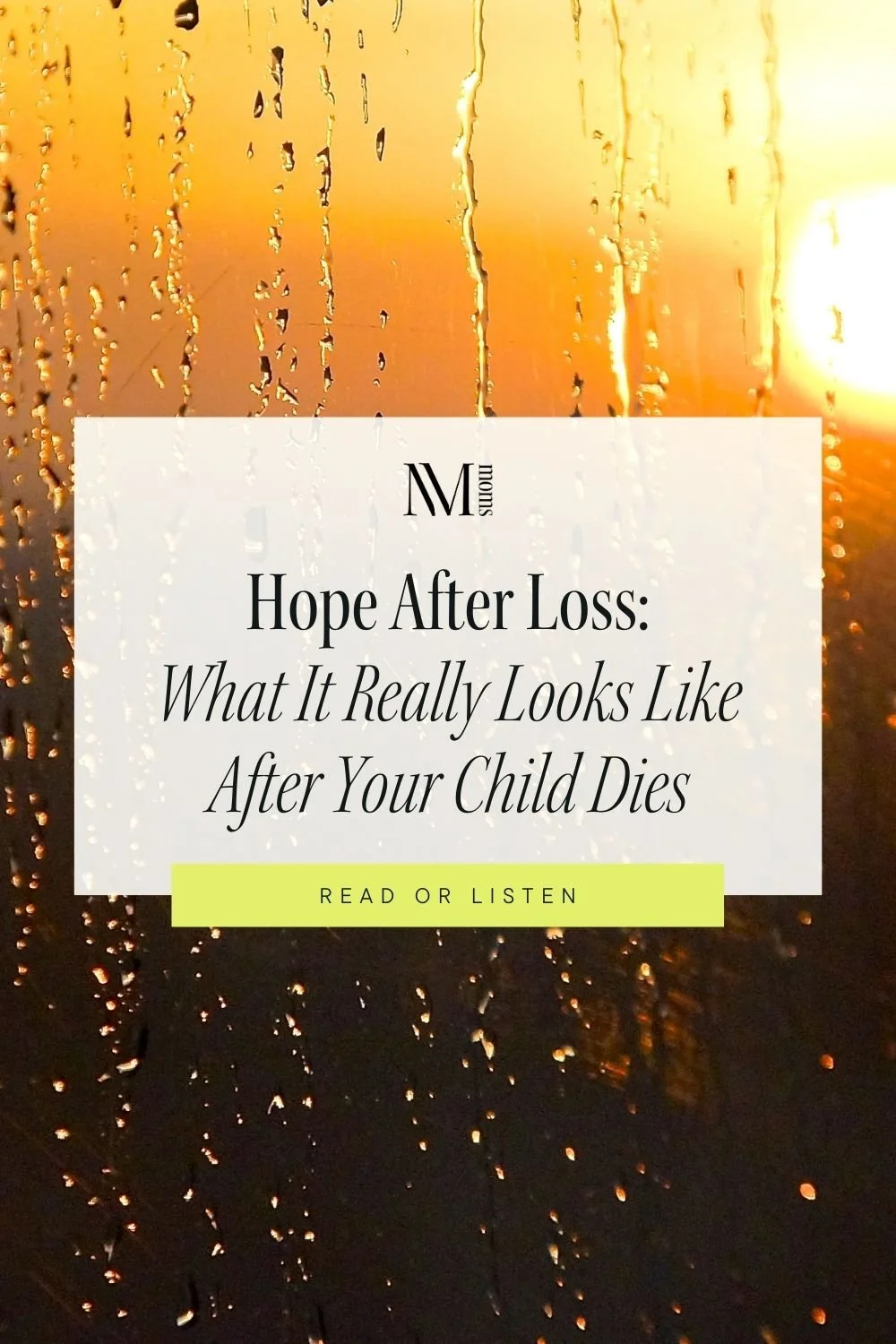My Baby Died: Gentle, Practical Help For The Early Days
Table of Contents Show
My Baby Died
I remember those first moments and days after my son passed away. My baby died. I couldn’t believe it. I was devastated. There was a deep heart wound that was raw and open.
The pain was so deep and permeating that it affected every area of my life. I felt the pain in my heart. I felt the pain in my mind. I felt the pain in my body. I felt the pain in my relationships.
I could hardly get out of bed. I could hardly eat. My thoughts were spinning, and I just wanted to sleep away for the rest of my life. Strong emotions of anger and sadness would overwhelm me, and then numbness would envelop me and no thoughts would come as my body and mind fought to survive.
I could hardly unravel what I was experiencing inside, how could I communicate that to my family and friends who wanted to support me?
Looking back, I see the grace God gave in those early days. Don’t get me wrong – they were some of the hardest moments of my life. There was nothing easy about it.
In those moments, nothing felt helpful. But looking back, I can see that there were some helpful things that helped me survive those early days. Over time, other things helped me process my grief and the death of my baby.
Maybe that’s you.
Maybe you are saying, “My baby died…now what.” or maybe you’re just at “My baby died…” That’s okay. I want to be here to help as much as possible.
Expressing the pain
I get it. In those first days, I couldn’t do much of anything. I couldn’t research the stages of grief. I couldn’t study the Bible to learn about lament.
I. just. Couldn’t.
Pain permeated my mind and heart.
So I did the only thing I could. Let the pain come out. It may seem small, but I stopped wearing makeup because I didn’t want to cover up anything that was going on inside. When someone asked how I was doing, I didn’t sugarcoat a thing. Everyone needed to know the pain I was in.
Now I realize that everyone processes through grief and expresses pain differently. But I thought it might be helpful to share a list of normal responses.
You might also like:
Creating A Memorial: Honoring Your Baby
Echoes Of The Heart: An Anthology Of Losing A Baby Poems
9 Healing Bible Verses for Miscarriage and Infant Loss
Not wanting to go on
Feeling overwhelmed by grief to the point where you don't want to go on is a natural part of mourning, and you're not alone in this feeling. However, if you find yourself thinking about suicide or making plans to take your life, it's important to recognize that this is a serious concern. Please seek help immediately. There are people who want to support you through this, and there is hope and healing ahead.
Your life is precious, and you deserve care and help in this incredibly tough time.
If you or someone you know is struggling with suicidal thoughts, please reach out for immediate help. In the United States, you can contact the National Suicide Prevention Lifeline for support.
National Suicide Prevention Lifeline:
Phone: 1-800-273-TALK (1-800-273-8255)
This lifeline provides free and confidential support 24 hours a day, 7 days a week for people in distress, as well as prevention and crisis resources. Remember, reaching out for help is a sign of strength, and there are compassionate professionals ready to support you through this difficult time.
A Note About Emotions
Emotions are a confusing thing. Really, they can feel like a tangled ball of mess. You might be feeling opposite emotions at the same time or be on a rollercoaster of being cynical yet trusting. How can this happen? I don’t know. But I do know it’s common.
It can be really helpful to simply put a name to the feelings you have inside. Identify the emotions and thoughts in your head and heart. This can help you communicate more clearly with your support people like your family and friends.
No, not everyone will understand what you’re going through or the feelings you’re having. That’s normal too, and that’s okay. Pretty sure I did a horrible job of empathizing with my friends who suffered the loss of their baby before I experienced this myself. So, as much as possible, let’s give grace to others the way we need it ourselves in such a hard time. 🤍
Also, often we get the pressure from the way we grew up or the culture around us that showing our emotions is unhelpful at best. But that’s not true. Emotions are more like a thermometer, not a thermostat. Negative emotions tell us and others that there is a problem. Positive emotions show that there is something good.
We need humility and grace to be able to share our emotions without feeling shame. We need a safe place because emotions feel vulnerable.
At the very least,
I hope you come away realizing that after the death of your child, a wide array of emotions is very common and normal,
I hope you feel better equipped to share your emotions with your close friends and family who want to support you.
You may also like:
Comforting Words For Christians Who’ve Lost A Baby: What To Say & What Not To Say
What Does God Do With Deep Heart Pain?
When Pure Joy No Longer Seems Possible
It's important to remember that grief doesn't follow a neat, orderly pattern. You may find yourself experiencing a mix of emotions simultaneously. This is completely normal. It's okay to feel contrasting feelings or to be surprised by the intensity and complexity of your emotions. During this challenging time, consider the support of a biblical counselor. They can be very helpful as they can provide a safe space to navigate and understand these feelings.
It might also be helpful when communicating your emotions with a spouse, friend, or family member to have this list printed off with the relatable responses marked. I don’t know. I know it’s been helpful for me, so I thought it might help others too.
Common Responses After the Death of a Baby
Abandoned - Feeling left alone in grief.
Afraid - Fear of the future or facing life without the child.
Angry - Anger at the situation, oneself, others, or even the deceased.
Anxious - Anxiety about coping or facing life.
Appreciative - Gratitude for the time spent with the child.
Ashamed - Feelings of guilt or embarrassment about grief reactions.
Betrayed - Feeling betrayed by one's own body, fate, or God.
Bitter - Resentment and bitterness over the loss.
Blessed - Feeling blessed for the time had with the child.
Broken - A sense of being irreparably damaged.
Calm - Periods of unexpected peace.
Chaotic - Feeling like life is out of control.
Cheated - Feeling deprived of time with the child.
Clueless - Uncertainty about how to proceed or cope.
Comforted - Feeling solace through memories or support.
Confused - Inability to understand why this happened.
Crushed - Feeling overwhelmingly defeated by grief.
Curious - Wondering about existential or spiritual aspects.
Cynical - Losing trust in the world or in God.
Dazed - Feeling numb or in a state of shock.
Defeated - Feeling powerless and overcome by grief.
Deluded - Brief moments of forgetting the loss.
Depressed - Deep sadness and depression.
Desolate - Feeling abandoned and utterly alone.
Despairing - Feeling without hope.
Detached - Feeling disconnected from reality or others.
Devastated - Profound and overwhelming grief.
Disbelief - Inability to accept the loss.
Discontent - Dissatisfaction with how life is proceeding.
Disoriented - Feeling lost without the child.
Distracted - Inability to focus or concentrate.
Distressed - Extreme anxiety, sorrow, or pain.
Doubtful - Doubting one’s ability to cope or recover.
Drained - Feeling physically and emotionally exhausted.
Eager - A desire to move forward or make changes.
Embarrassed - Feeling self-conscious about one's grief.
Emotional - Experiencing intense, varied emotions.
Empathetic - Developing deep empathy for others who suffer.
Empty - Feeling a void that cannot be filled.
Enraged - Intense anger, sometimes irrational.
Envious - Jealousy of others who haven’t experienced such loss.
Exasperated - Feeling frustrated with oneself or others.
Exhausted - Extreme physical and emotional fatigue.
Expectant - Hoping for something positive to emerge.
Fearful - Fear of the future or of forgetting the child.
Fragile - Feeling weak and vulnerable.
Frantic - Desperate or uncontrolled behavior.
Frustrated - Irritation and annoyance with the situation.
Fulfilled - Finding meaning or fulfillment in memories.
Furious - Intense, often uncontrollable anger.
Generous - Desire to give to others, possibly in memory of the child.
Grateful - Thankfulness for support or memories.
Guilty - Feeling responsible for the child’s death.
Harmonious - Brief moments of inner peace.
Heartbroken - Profound sadness and heartache.
Helpless - Feeling unable to change the situation.
Hesitant - Uncertainty about moving forward.
Hopeful - Feeling hope for healing or the future.
Horrified - Shock and horror about what happened.
Hostile - Antagonism or opposition towards others.
Humbled - Feeling modest or lower in importance.
Hurt - Deep emotional pain and suffering.
Hypercritical - Overly critical of oneself or others.
Hysterical - Overwhelming emotional outbursts.
Ignored - Feeling that others don’t understand or care.
Impatient - Irritation with the pace of healing.
Impulsive - Acting without thought due to emotional stress.
Inadequate - Feeling insufficient or lacking.
Indecisive - Inability to make decisions.
Indignant - Anger at perceived unfairness.
Insecure - Lack of confidence in oneself or the future.
Insensitive - Feeling numb or unresponsive to others.
Inspired - Finding inspiration in memories or legacies.
Introspective - Deep self-examination and reflection.
Irrational - Illogical thinking or beliefs.
Irritated - Annoyance and frustration.
Isolated - Feeling cut off from others or the world.
Jealous - Envy of others who haven’t experienced loss.
Jittery - Nervousness and restlessness.
Judgmental - Critically judging others or oneself.
Jumpy - Easily startled or agitated.
Lethargic - Lack of energy and enthusiasm.
Lonely - Feeling isolated and alone.
Lost - Feeling directionless or without purpose.
Loved - Feeling love from others or for the child.
Low - Depressed or downhearted.
Melancholic - Deep, persistent sadness.
Miserable - Extreme unhappiness or discomfort.
Misunderstood - Feeling that others don’t comprehend the pain.
Moody - Frequent changes in emotional state.
Motivated - Driven to act, perhaps in memory of the child.
Nauseated - Feeling physically sick from emotional turmoil.
Nervous - Anxiety and apprehension.
Nostalgic - Longing for the past or happier times.
Numb - Emotional deadening or detachment.
Obsessed - Preoccupied with thoughts of the child or death.
Offended - Feeling insulted or slighted by others.
Optimistic - Hopefulness and confidence about the future.
Overwhelmed - Feeling unable to cope with intense emotions.
Pained - Experiencing deep emotional or physical suffering.
Panicked - Sudden, uncontrollable fear or anxiety.
Paranoid - Distrustful or suspicious of others' intentions.
Passionate - Intense emotions or convictions, sometimes about advocacy or memory-keeping.
Patient - Ability to tolerate delays in the grieving process.
Peaceful - Moments of tranquility and calmness.
Perplexed - Confusion or puzzlement over the situation.
Pessimistic - Seeing the worst aspect of things or believing the worst will happen.
Petrified - Extreme fear or terror, often about the future or facing life without the child.
Pitying - Feeling pity for oneself or others.
Powerless - Feeling unable to affect one's situation.
Preoccupied - Absorbed in thoughts, often about the child or circumstances of the death.
Pressured - Feeling forced to act or feel a certain way.
Proud - Feeling pride in the child or in surviving the loss.
Puzzled - Inability to understand or make sense of the loss.
Rageful - Intense, uncontrolled anger.
Regretful - Feelings of regret or wishing things were different.
Rejected - Feeling discarded or unimportant.
Relieved - Feelings of relief, sometimes guiltily, if the child suffered.
Remorseful - Deep regret or guilt for perceived failings.
Resentful - Holding onto anger or bitterness.
Resigned - Acceptance of the situation, often reluctantly.
Restless - Inability to rest or relax, often due to racing thoughts.
Sad - Profound sorrow and unhappiness.
Scared - Fear about the future or other aspects of life.
Sensitive - Increased sensitivity to the words or actions of others.
Shaken - Disturbed or upset by the loss.
Shocked - Sudden and intense disturbance of the mind or emotions.
Skeptical - Doubtful about the support or understanding of others.
Sobered - Serious, subdued, or reflective, often due to the magnitude of the loss.
Sorrowful - Deep and lasting sadness.
Speechless - Unable to express feelings in words.
Stressed - Feeling under pressure or overwhelmed.
Stunned - Dazed or bewildered by the loss.
Subdued - Quiet, reflective, often due to sadness.
Suffocated - Feeling overwhelmed or trapped by emotions.
Supported - Feeling upheld and cared for by others.
Suspicious - Distrustful of others’ intentions or actions.
Sympathetic - Feeling sympathy for others who suffer.
Tearful - Prone to crying or feeling on the verge of tears.
Tender - Feeling gentle, affectionate, or sensitive.
Tense - Feeling stressed or on edge.
Terrified - Extreme fear, often about life without the child.
Thankful - Gratitude for support, memories, or experiences.
Thoughtful - Deeply reflective or considerate.
Thwarted - Feeling prevented from moving forward.
Tired - Physical and emotional exhaustion.
Tormented - Experiencing severe mental or emotional suffering.
Touched - Moved by the kindness or memories of others.
Tranquil - Peaceful, calm, and untroubled.
Traumatized - Deeply disturbed by the experience.
Troubled - Worried or distressed.
Trusting - Having trust or faith in others or a process.
Uncertain - Unsure about the future or how to cope.
Understood - Feeling that others comprehend your pain.
Uneasy - Feeling discomfort or concern.
Unhappy - General discontent or sadness.
Unsettled - Feeling not at peace or relaxed.
Unsupported - Feeling alone or without help.
Upset - Distressed or agitated.
Vengeful - Desiring revenge or harboring grudges.
Vulnerable - Feeling exposed to emotional hurt.
Wary - Cautious about the future or others.
Weak - Lacking strength, physically or emotionally.
Weary - Extreme tiredness, physically or emotionally.
Withdrawn - Pulling back from social interactions.
Wondering - Pondering or questioning about the why and how.
Worried - Concerned or anxious about many aspects.
Worthless - Feeling of having no value or importance.
Wounded - Feeling deeply hurt or injured, emotionally.
Yearning - Intense longing for what was lost.
This list is not exhaustive, and emotions can change or overlap. Each person's journey through grief is personal, and they may experience a wide range of feelings not captured here. It's crucial to approach this subject with sensitivity and understanding that there is no "right" way to grieve.
Summary
Grief is a deeply personal and complex experience, particularly for bereaved mothers coping with the loss of a child.
I get it. When my baby died, the range of emotions was vast and varied. Know that feelings of despair, confusion, anger, and moments of peace can coexist. Grief is a process and a non-linear one at that.
It's crucial to acknowledge that experiencing intense and conflicting emotions is a normal part of grieving. Seeking help, particularly from professional counselors, can be a significant step in managing these emotions and finding a path toward healing.
Remember, you are not alone in this journey, and support is available to help you navigate through this challenging time.
Glory to God alone,
Kathy
As a mom who’s suffered the loss of my baby, I know deep heart pain.
I tried to run from God, but he convinced me of his love and comforted my heart with hope and healing in Jesus.
Now, it’s my mission to share this same comfort with others who’ve experienced the pain of miscarriage and infant loss.
— Kathy
What do you think?
Please share in the comments below, I’d love to hear!
If you found this helpful, please share!

